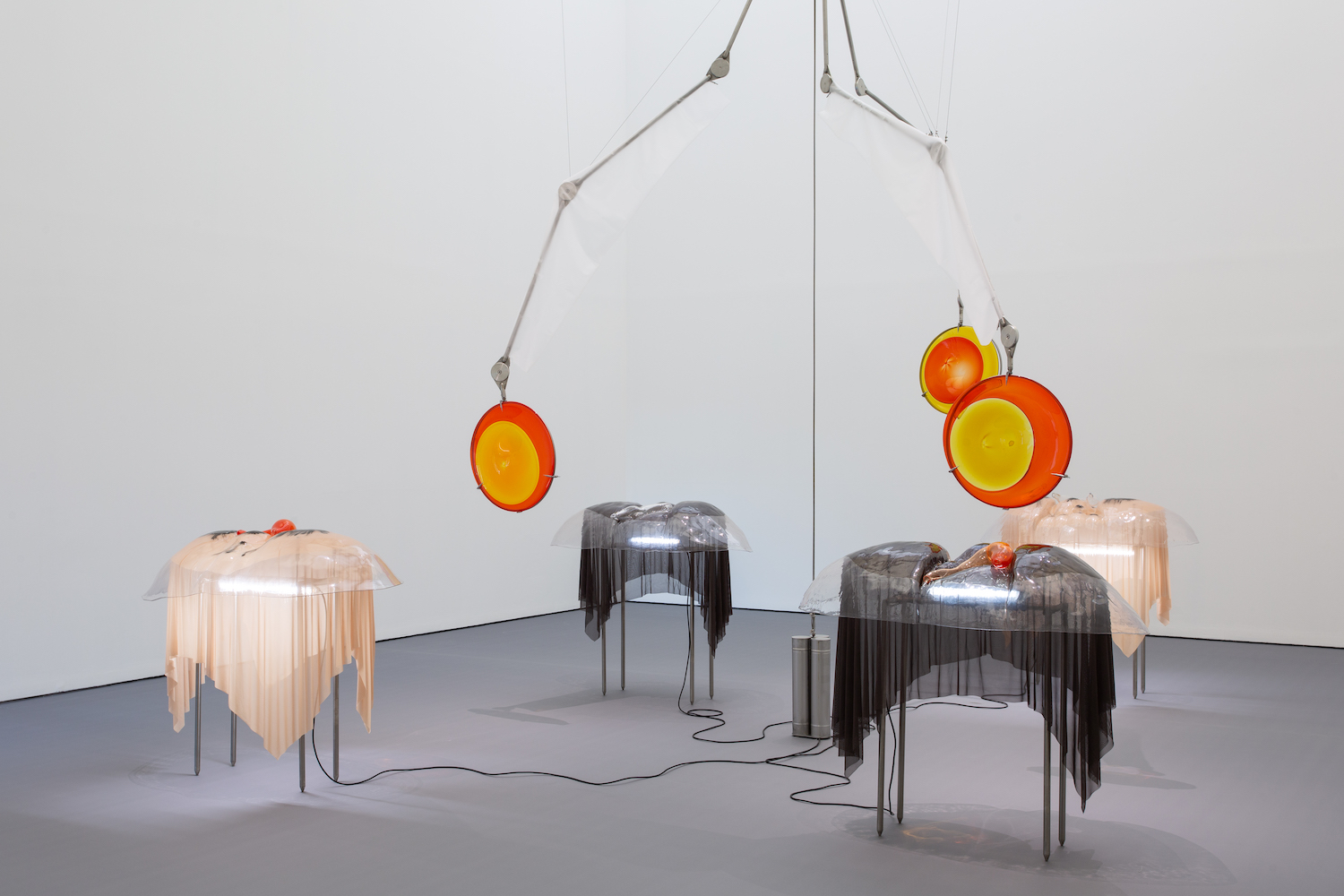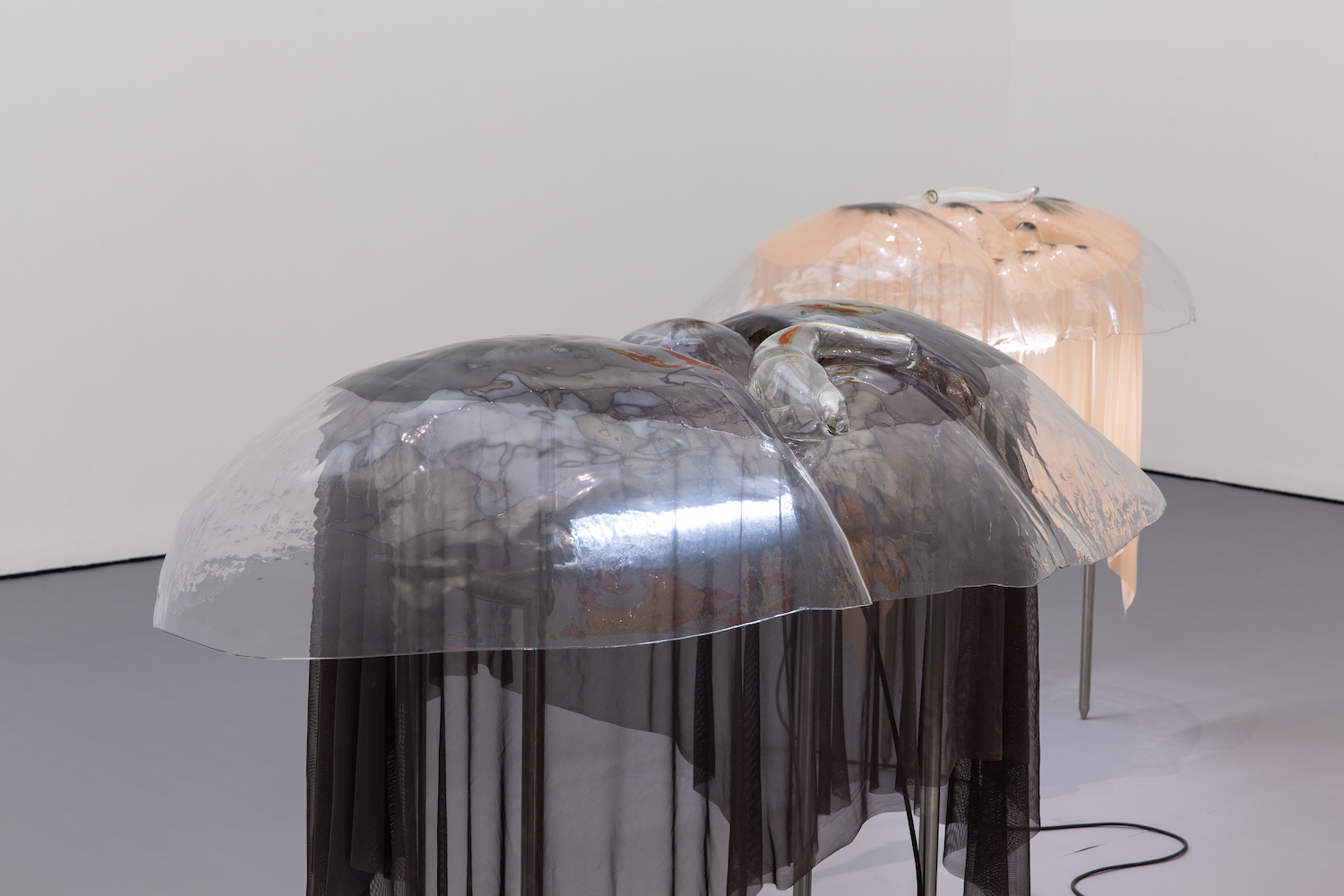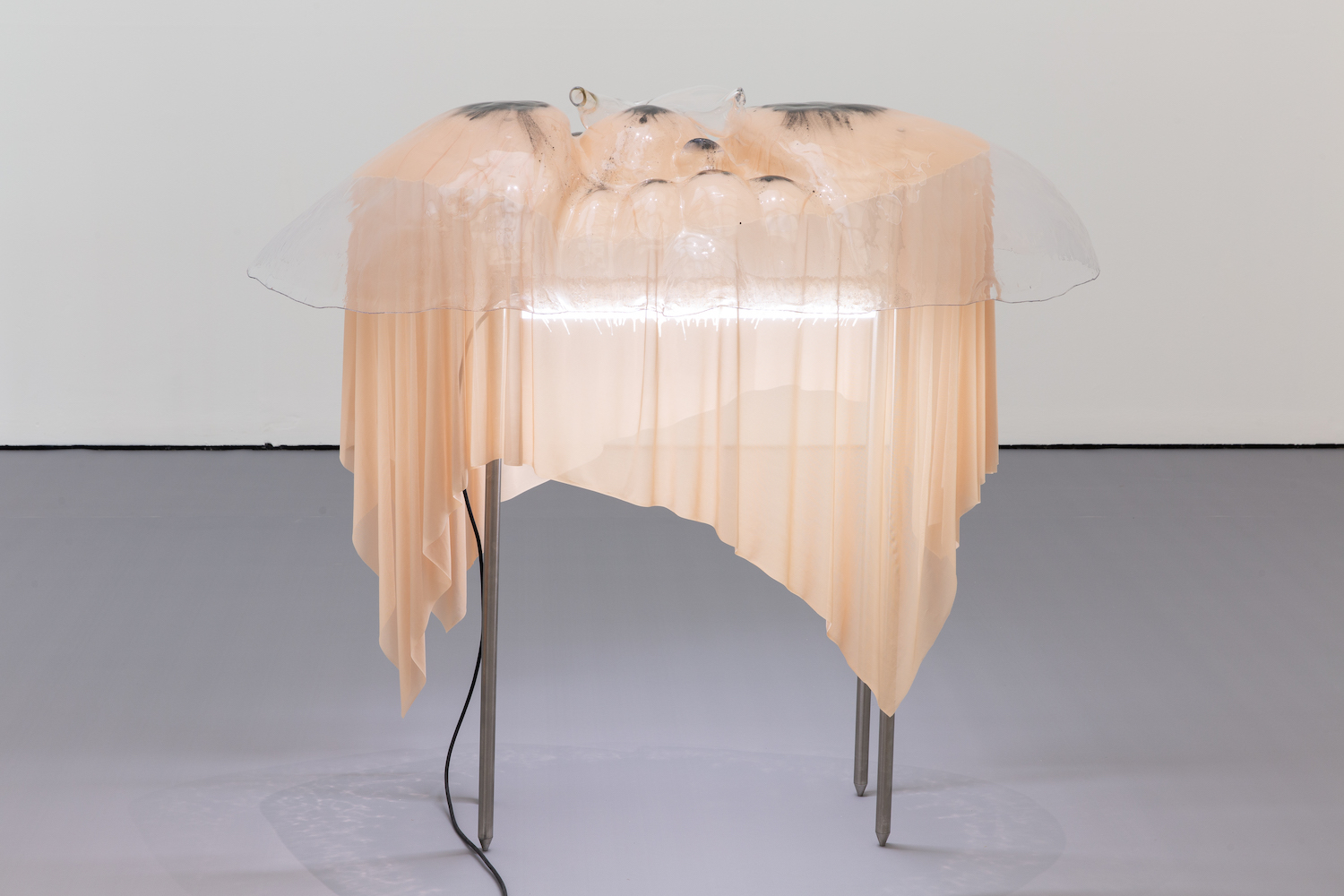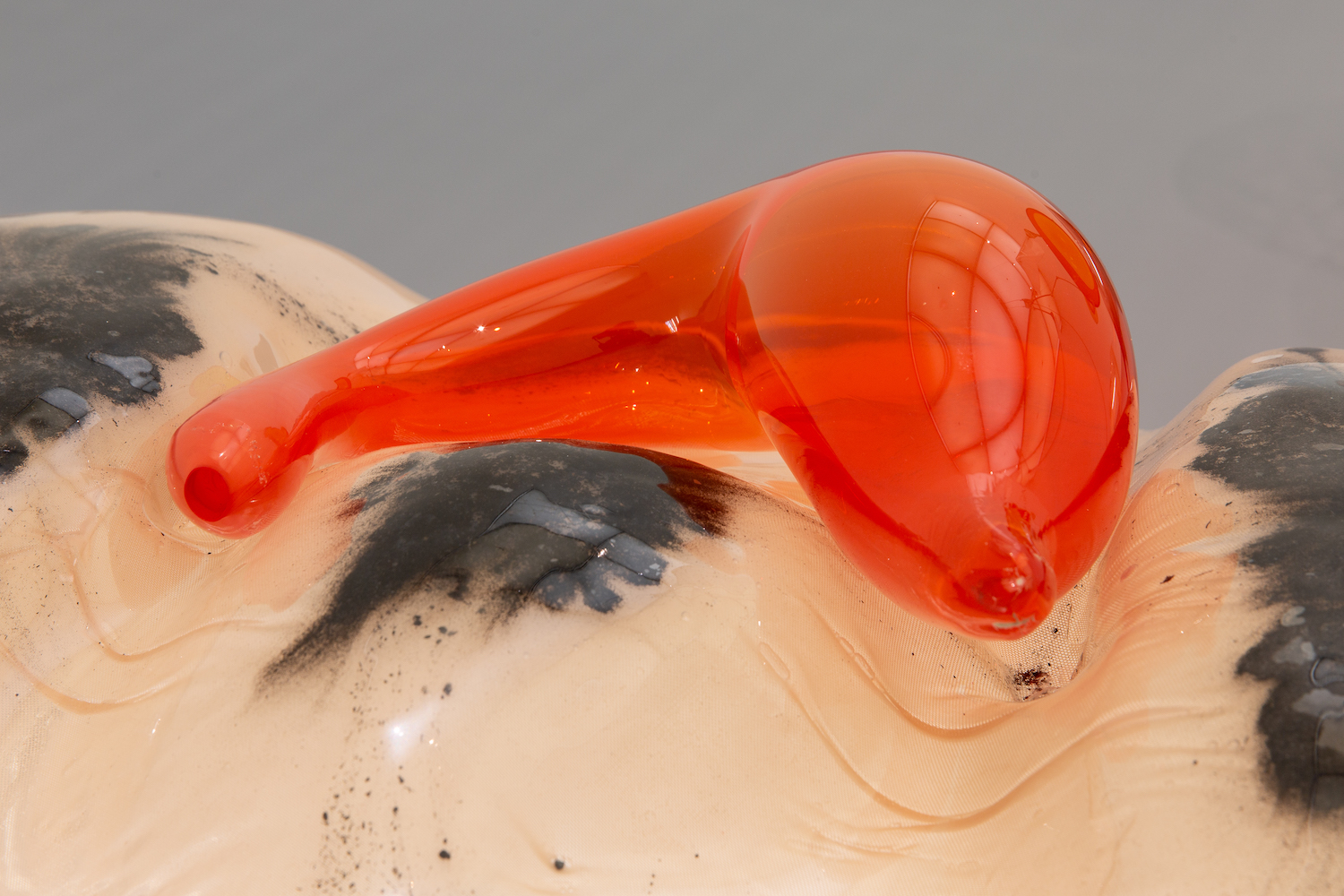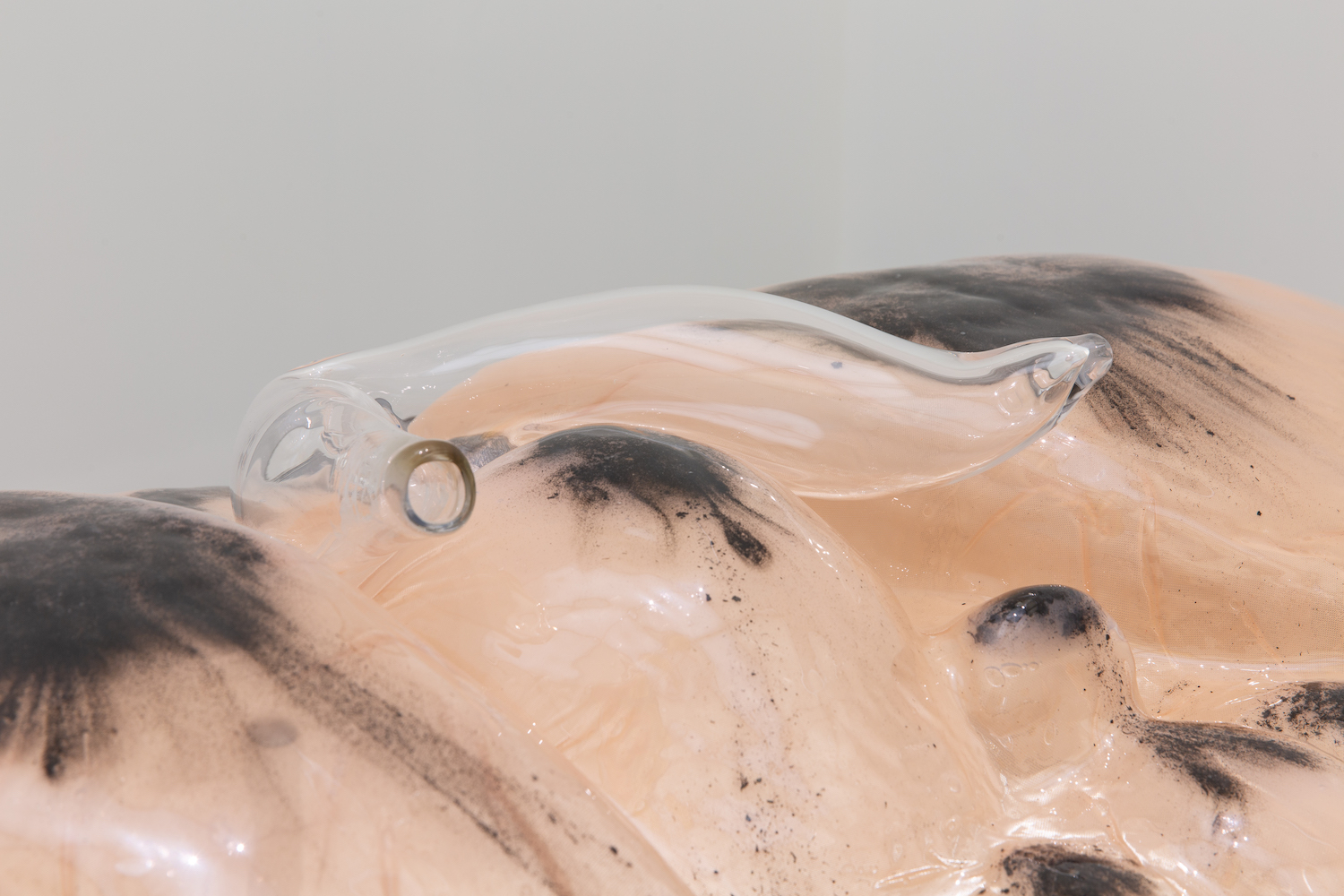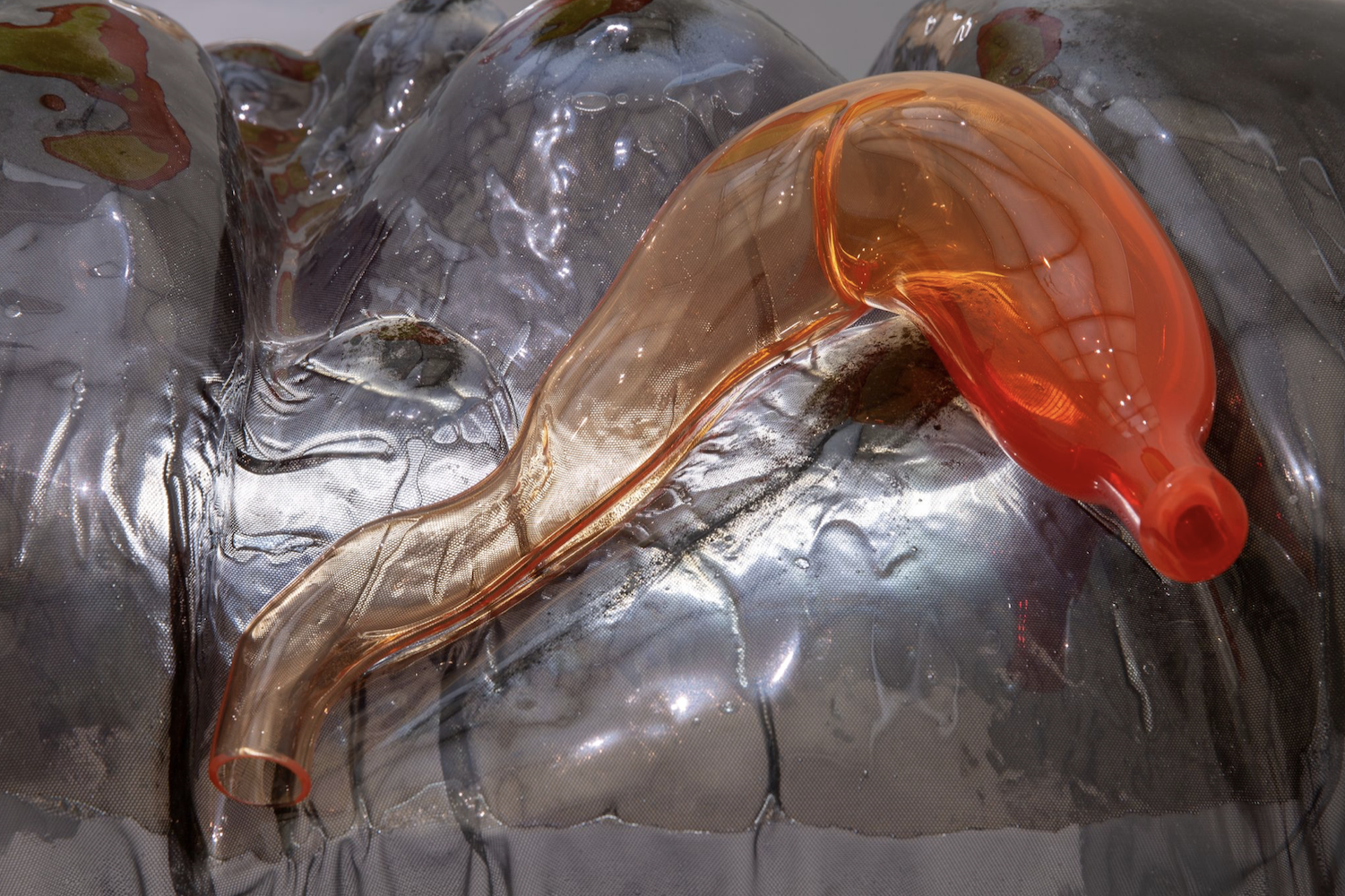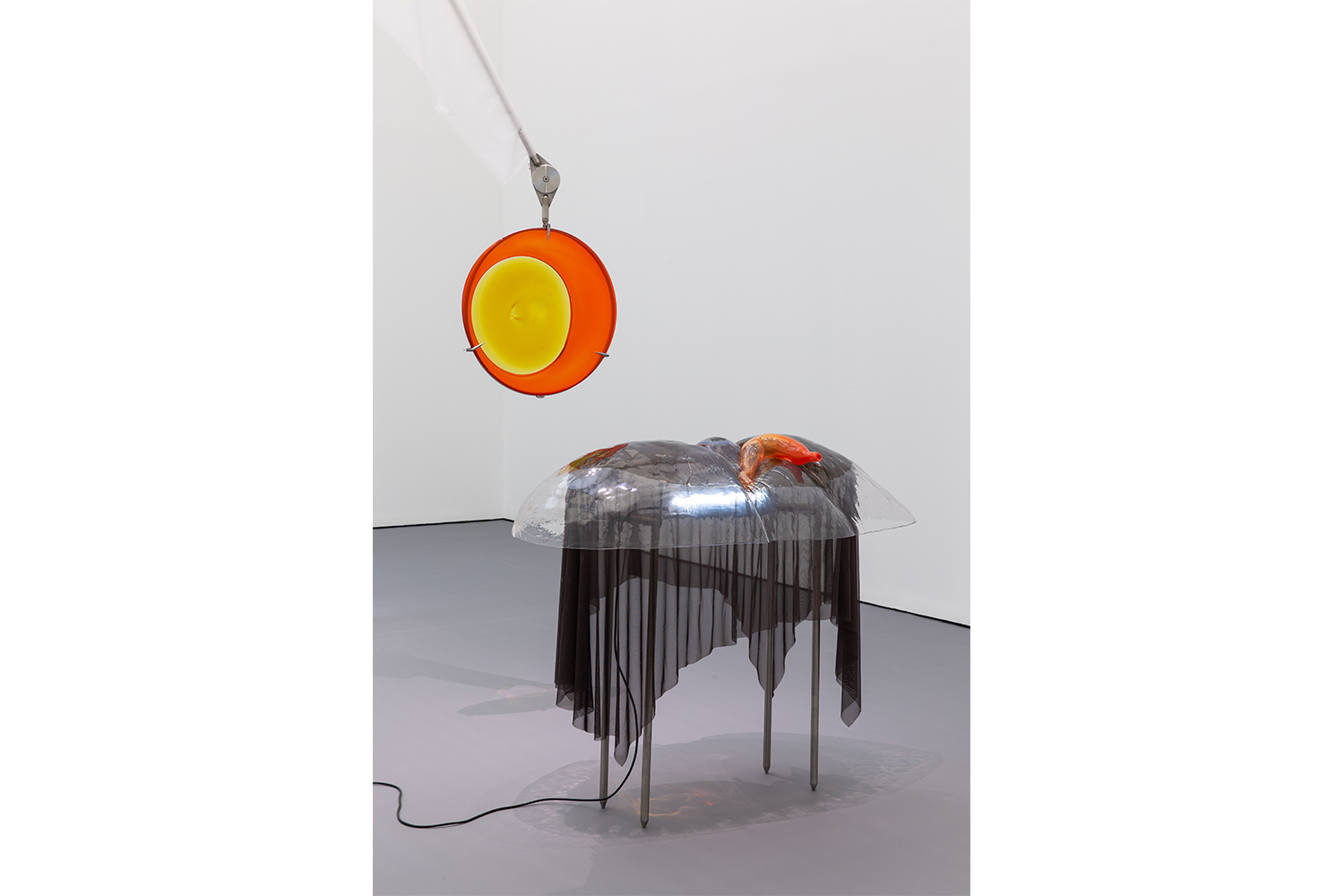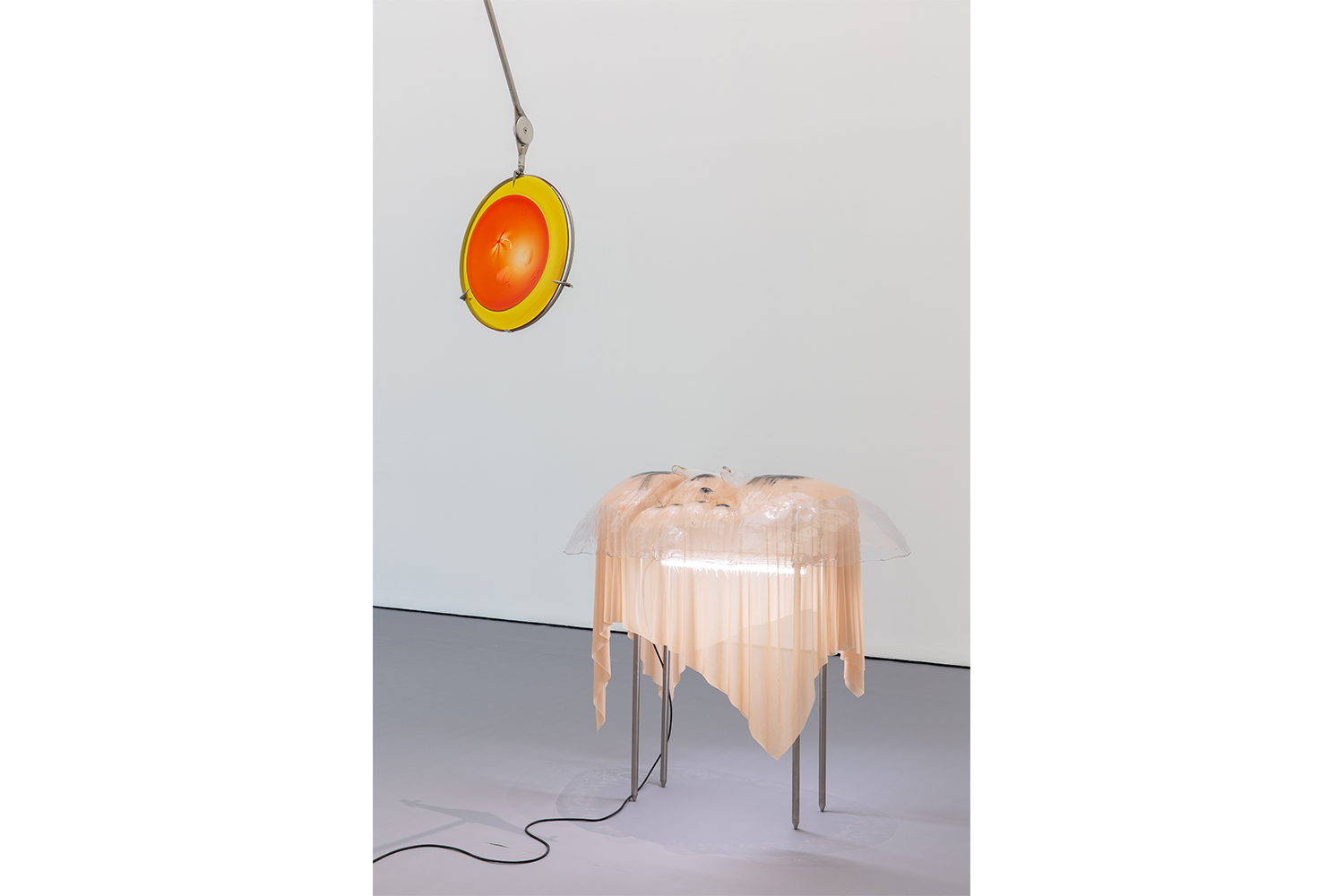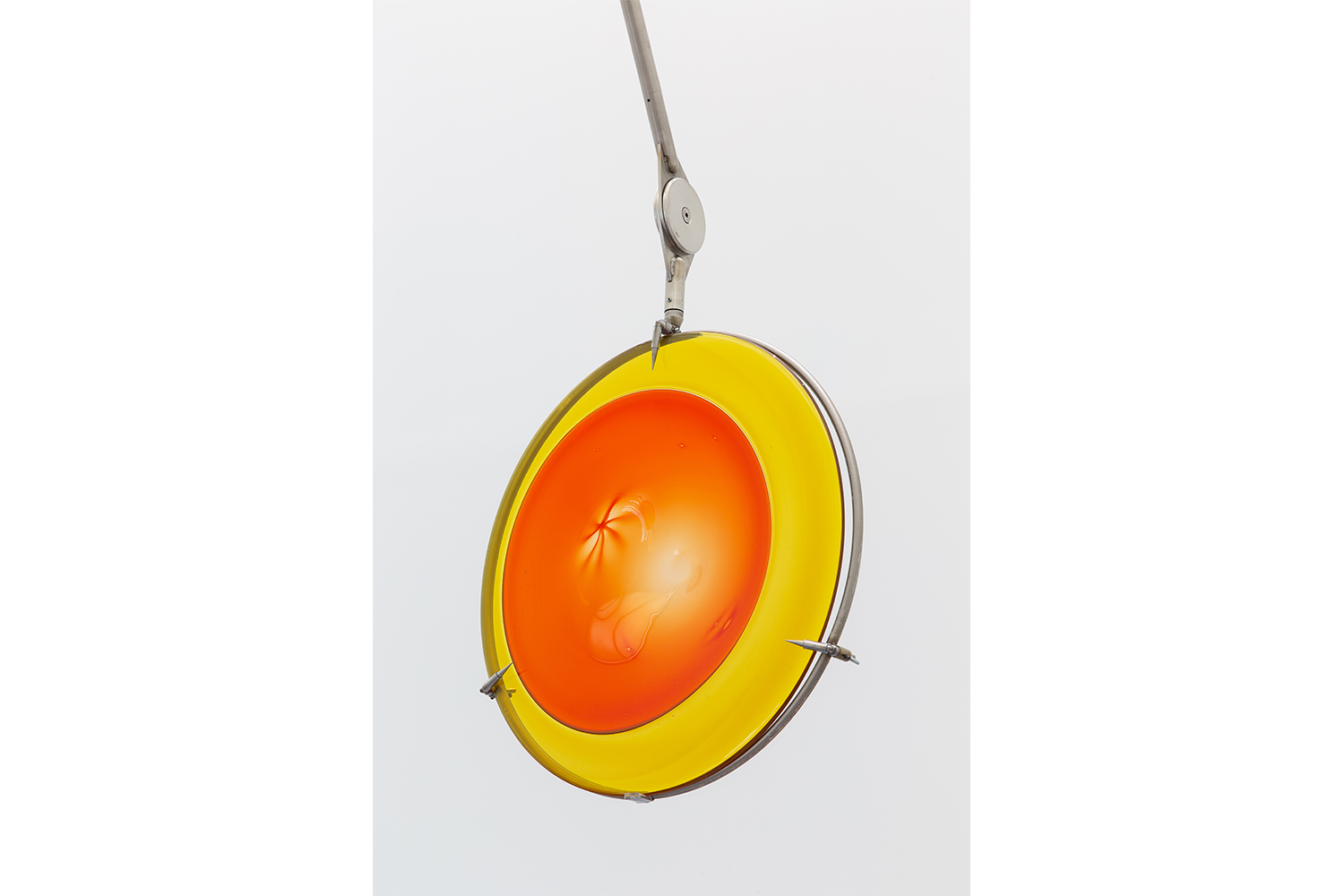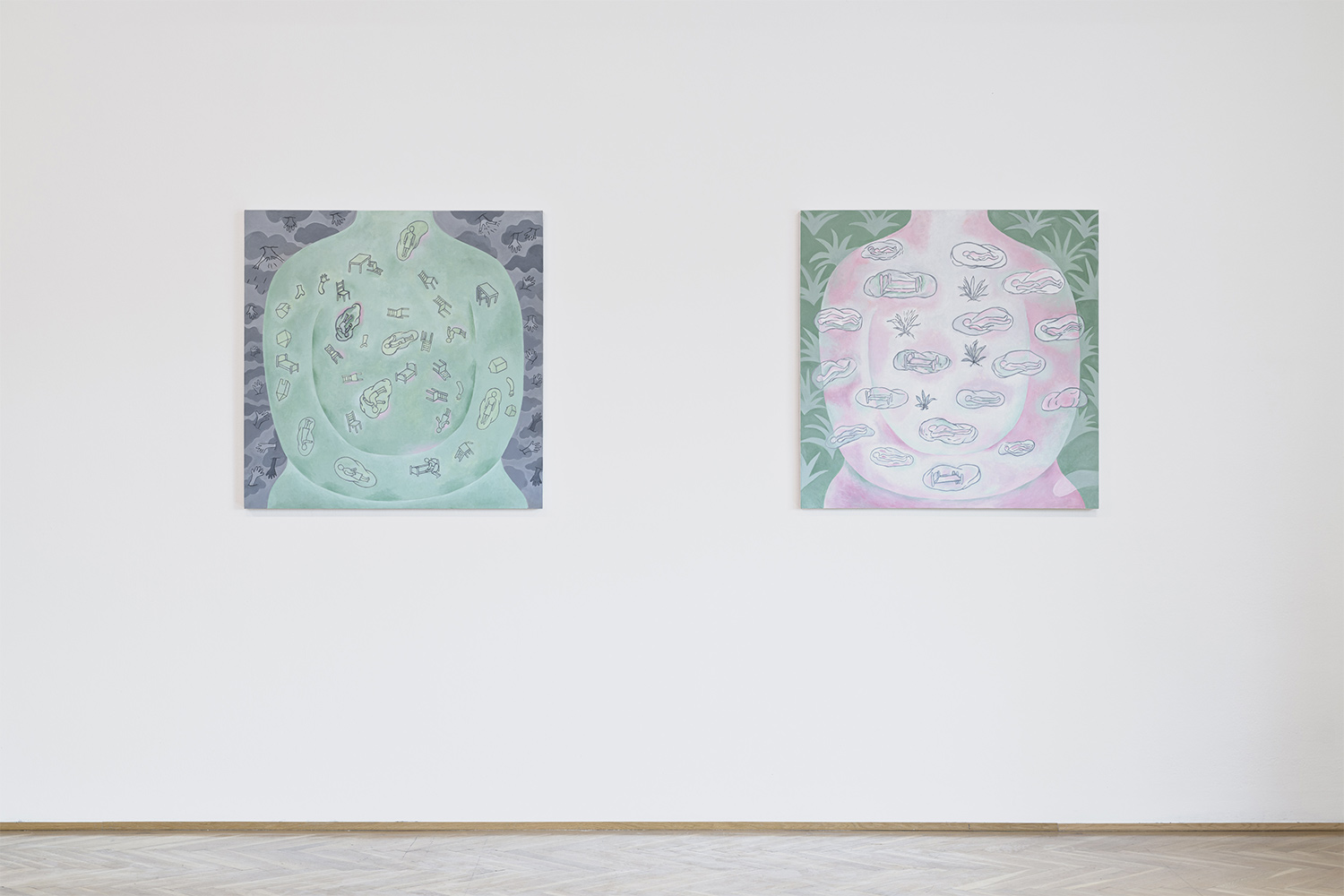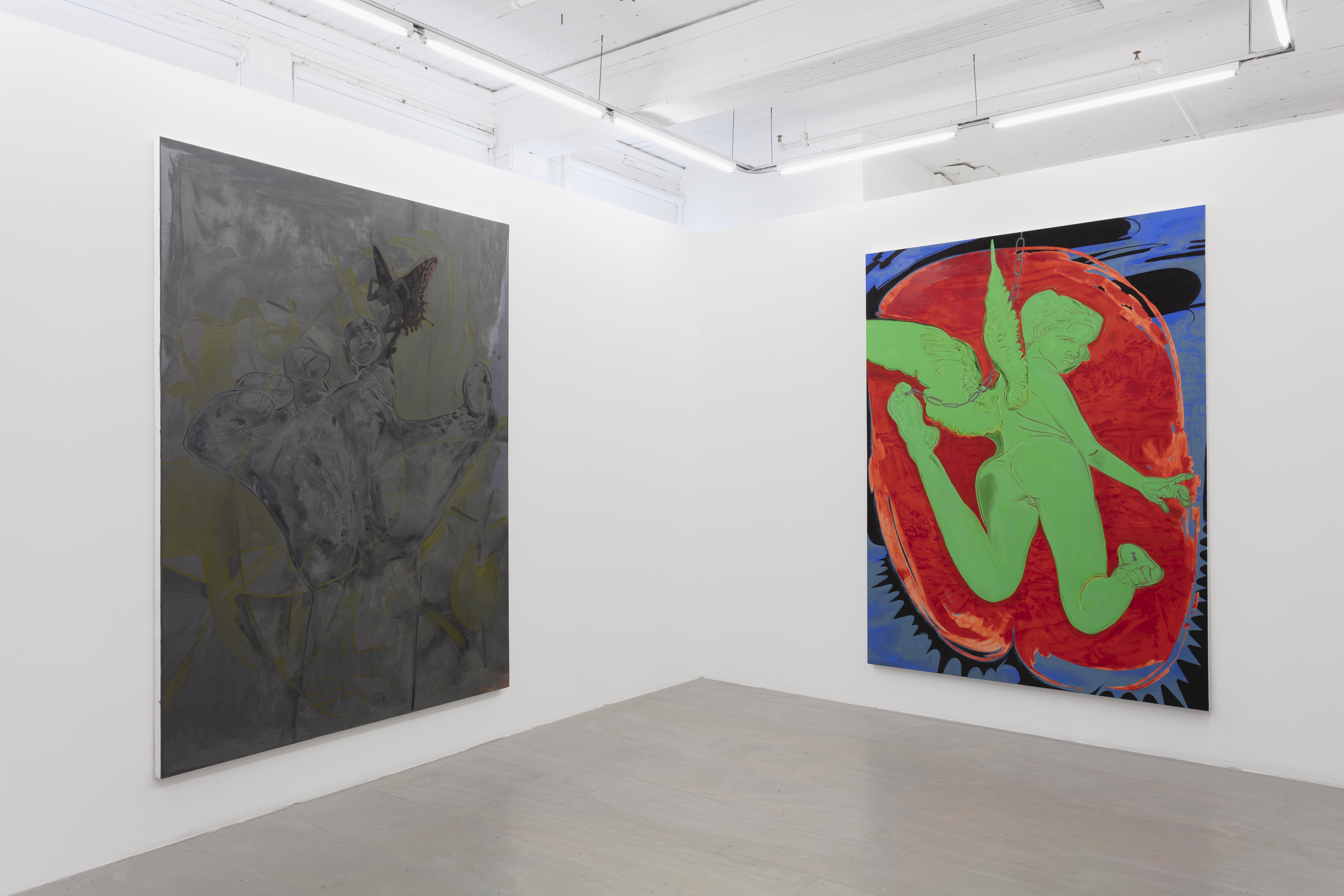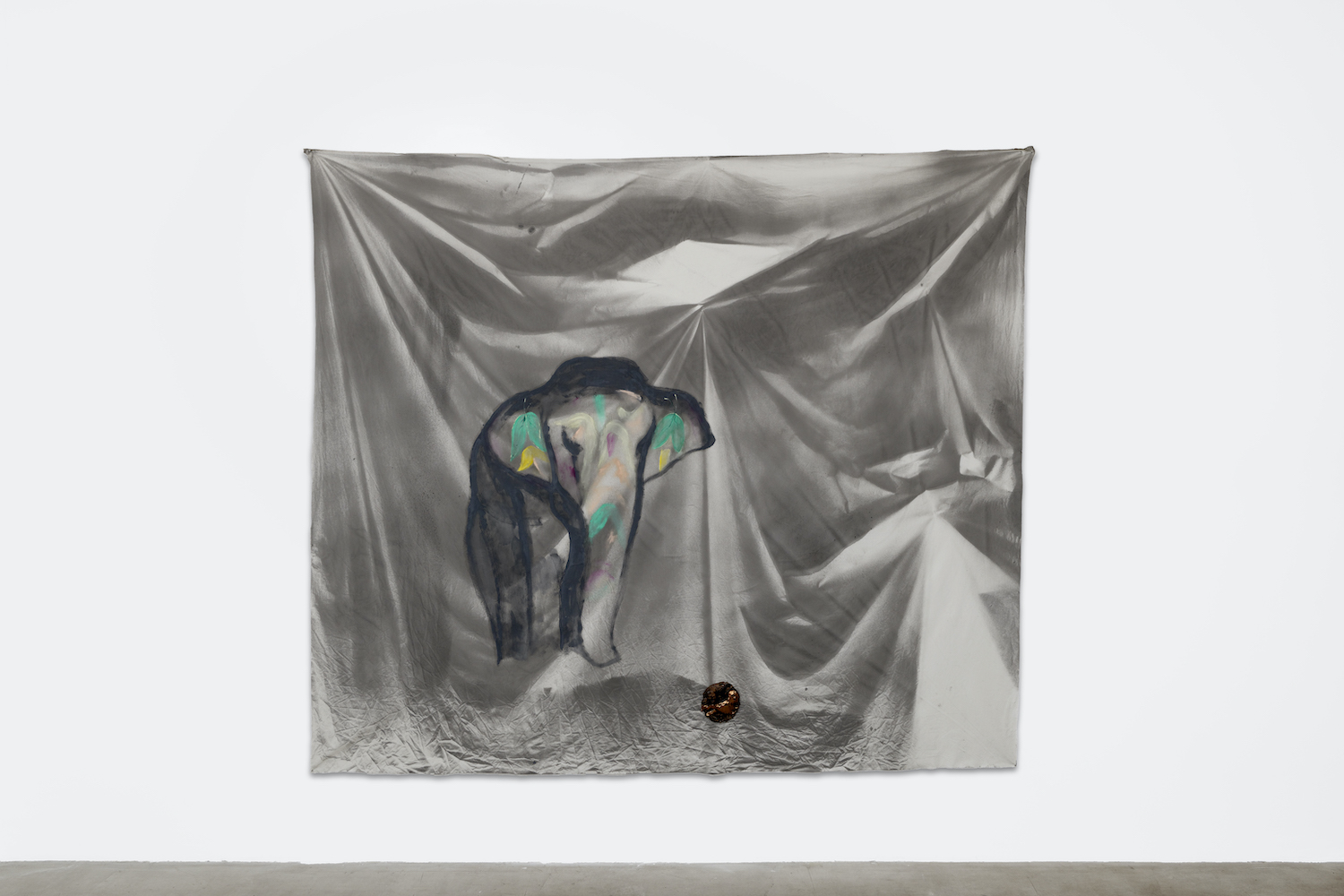I was once told by a nurse, “If there is a pill for it, take it.” I was a teen at the time, and this was advice doled out by the mother of a friend, so it was by no means given in the context of a professional consultation. Still, the words stuck with me. The certainty within the phrasing is so pronounced that it appears to be inoculated against argument. If the sterile, simple, pharmacological opportunity for betterment (or even cure) is there, it should be seized.
This sentiment is what seemingly lies at the core of what Pakui Hardware’s new presentation, “Virtual Care,” aims to explore. Commissioned by BALTIC to be specially realized for their second-floor gallery, Pakui Hardware intervened in the space with a site-specific installation recreating an operating theater, where robots with hybrid “bodily forms” have supplanted human beings as the primary or sole caretakers. Here, the accompanying wall text makes much of the absence of the human hand, doing so by highlighting the museumgoer as the single human “exception” in an otherwise markedly austere room commanded by technology. With this, the contrast between human and machine is foregrounded to the extreme.
The concept is driven home by the aesthetics of the installation itself. A hanging lamp resembling a steel spider hovers over the “bodies” of four patients. Their innards are crafted from resin and alternate between clear or a deep red coloring. Circular glass shapes are affixed to the ends of the spider’s suspended arms, their ochre tones giving off the impression of providing warmth to the sculptural hybrid bodies over whom they preside (or rather, loom).
The work of Pakui Hardware, founded in 2014 by Neringa Cerniauskaite and Ugnius Gelguda, examines the ongoing implications of technology’s increased impingement upon human life, particularly in terms of the physical body. Shortly before “post-human” became a buzzword and Donna Haraway’s A Cyborg Manifesto became popular reading, the pair was already exploring the term’s close association with hybridity, beginning with their 2014 installation “The Metaphysics of the Runner.” Like “Virtual Care,” the artists’ inaugural installation was sparse and cold, imagining a sterile gym devoid of humans.
According to Pakui Hardware, an element of “The Metaphysics of the Runner” was about “consuming additives” — a point that is carried on throughout their research and into 2021’s “Virtual Care,” which stems from their continued interest in “various technologies and techniques to achieve rejuvenation and immortality.” If there’s a pill for it, take it.
“Virtual Care” marks the Lithuanian duo’s first solo outing at an institution in the United Kingdom. Though it is billed as a site-specific installation and exhibition, the site-specificity is lost on me; this work could exist — and function well — in any gallery space across a bevy of circumstances. Equally misleading is BALTIC’s clear attempt to draw ties between “Virtual Care” and the COVID-19 pandemic. It’s understandably convenient that the exhibition has been staged during the ongoing crisis, and while there is a tenuous connection between the two, forcing this relationship does an intelligent and provocative show a disservice. Pakui Hardware’s work was timely pre-pandemic; it is in no need of extra conceptual frills to emerge as a strong indictment of our relationship to technology and the pervasive toxicity permeating contemporary methods of care.

